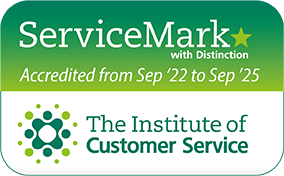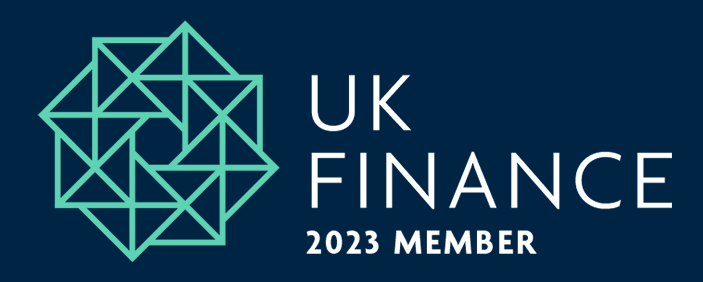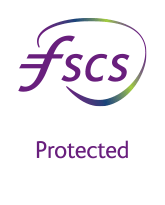We're only too happy to bust some of these common shared ownership myths and misconceptions.
First-time buyer? Wondering what steps you need to take to get to your own front door? Welcome!
This guide takes you through the process of buying your first home, including saving your deposit and applying for a mortgage.
Buying your first home: a guide for first-time buyers
As well as the deposit, you need to know if you can afford the monthly mortgage payments. As a first-time buyer, the most important thing to consider is whether you can afford this step - you can do this by reviewing your expenses and putting together a budget before you start house hunting.
You can use free online tools to calculate what kind of mortgage payment you can realistically afford each month. Free tools like the Money Advice Service’s online budget planner or Money Saving Expert’s budget planner can be really helpful.
Lenders will check that you can afford the mortgage and ‘stress test’ your ability to make payments if interest rates rise or your circumstances changed. You'll also need to give your lender evidence of any outgoings and your income.
If you are employed by a company, you should receive weekly or monthly payslips. You'll need to provide at least three months’ worth of payslips and potentially up to twelve months’ if you receive overtime or commission from your job, as well as your latest P60.
Self-employed or contractors
If you're self-employed or a contractor, getting a mortgage can be more difficult. You'll need to prove your income, usually in one of three ways:
-
Business accounts - you will need to be able to show two- to three-years of accounts. Usually, the lender will require them to be signed off by a Chartered or Certified Accountant.
-
Tax returns - if you're unable to show business accounts, two or three years of tax returns are the next best option.
-
Contracts - proof of short- or long-term contracts and recent contractual history.
You will be assessed on profits, not turnover. Read our self-employed mortgages guide for further information.
Before booking appointments to view your dream home, you’ll need to save for a deposit - usually at least 5% of the cost of the property you want to buy.
For example, if you want to buy a home costing £200,000, you’ll need to save at least £10,000 (5%). However, saving more than 5% will give you access to a bigger range of mortgages.
The golden rule: a larger deposit = a better rate = lower monthly repayments.
The difference between a 5% and 10% mortgage can provide savings in monthly repayments; the next jump is at 25% and then a 40% deposit. So, if you have any chance of pushing yourself up a band, do it!
The Bank of Mum and Dad (or Granny and Grandad)
Many first-time buyers rely on help from parents for their deposit, but parents can be much more directly involved. There are a number of ways in which parents (or other relatives) can help - and not all involve gifting cash.
Before rushing ahead with your mortgage application, make sure you're aware of any fees, which are in addition to moving costs. You could keep back some of your deposit to cover these costs, or sometimes you can add the fees to your mortgage. Providing the fees are refundable, you won’t lose any money if the mortgage doesn’t go ahead.
Before going ahead with your application, you should be aware of fees in addition to your moving costs. You might want to think about reserving some money from your deposit to cover these. In some cases, it's possible to add fees to your mortgage. This way, you won't lose any money if your mortgage application doesn't go complete, as long as the fees are refundable.
Types of mortgage fees:
-
Application/arrangement fee - Some lenders charge a fee to arrange your mortgage. This covers the cost of assessing your application and setting up your mortgage account. This fee can often be added to your mortgage and may be refundable if the mortgage doesn't complete.
-
Booking or reservation fee – Some lenders charge a separate reservation fee to secure a fixed-rate, tracker, or discount deal. This is always payable upfront and is non-refundable. Some lenders roll this charge into the arrangement fee.
-
Valuation fee - A mortgage valuation is an inspection to ensure the property is suitable security for the loan required. The fee is based on the purchase price or estimated value. A mortgage valuation is primarily for the lender's benefit, but they typically provide you with a copy of the report. Some mortgage products may include a free valuation; however, if you want a more detailed report, there is usually an additional fee.
Download our mortgage explained guide for a complete overview of the mortgage process.
Other costs of buying a home
Yes, more costs! Apart from the monthly mortgage payments, there are other costs when buying a home to be aware of.
These include:
-
Survey costs
-
Solicitor’s fee(s)
-
Removal costs
-
Buildings insurance
-
Initial furnishing and decorating costs
-
Stamp Duty (you can visit the gov.uk website to calculate how much stamp duty you'll need to pay.
There are many different mortgage types, interest rate options, and repayment types out there, and knowing which is best for you can be tricky. It can depend on several variables, so doing some research and talking to an independent mortgage adviser is a great place to start.
While you can research mortgage deals on comparison sites or lenders' websites, what you won't know from doing this is if a mortgage is suitable for you, or if a lender would accept your application.
Research affordable home-buyer schemes to get you on to the property ladder
Several government-backed schemes, such as Shared Ownership, aim to give home buyers a helping hand onto the property ladder with smaller deposits. Don't forget: if you use one of these schemes, lenders will still want to ensure you can afford to pay your mortgage.
Making sure you can afford a mortgage and having a deposit is just the start - affordability and credit checks play a part in assessments of whether they will give you a mortgage. Not every lender will view you in the same way, but there are several things you can do to get in top mortgage shape.
Time to find your home
So, now you can start looking. Once you have found a property you want to buy, the next step is to make an offer, usually through an estate agent. If your offer is accepted it is then time to make your mortgage application.
Apply for a mortgage
Your lender has a responsibility to ensure that you can afford the mortgage you're asking for. Don’t be worried that the mortgage application form seems very detailed, it's all about working out how much you've got coming in, how much you've got going out, and what you can afford to pay.
You will need to provide:
-
Proof of identity for example; photo driving licence, passport, birth certificate and your national insurance number (it will depend on what the relevant lender requests)
-
Proof of address for the last three years, such as utility or council tax bills (if relevant)
-
Employment details and contact number
-
Proof of income such as payslips, P60, self-employed accounts (two to three years and approved by a chartered accountant), SA302s.
-
Proof of bonuses and commission
-
Proof of deposit (plus written confirmation from donor — typically parents — if getting a gift towards the deposit that it really is a gift & not a loan)
-
Outgoings including debts and loans
-
Your last three months bank statements
-
Details of assets such as other accounts, properties, investments, etc.
Your lender will also need to be comfortable with the property you want to buy. Some lenders won’t lend on homes near commercial premises, those without a working kitchen or bathroom (even if you plan to refurbish), or those in a high rise. So ensure you declare everything on your application form.
The purchasing details you will need to provide include:
- Which property you wish to buy (address and details)
- Contact details for your solicitor/conveyancer
- Your valuation/survey requirements
- Your bank account (if not with the lender)
Your lender will then arrange for a surveyor to conduct a valuation of the property you wish to buy. During this period, the lender will also be processing the rest of your application. This will involve processing fees, chasing outstanding documents and checking all details. It is vital that each and every piece of information you put on a mortgage application form is correct, otherwise it could cause delays or even your application to be declined.
Once the lender has finished processing your application, and if they are happy with the application and valuation, they will extend a formal offer to you. If you accept, they will send a copy to your solicitor.
Then the exchange of contracts can take place. The funds will be sent to your solicitor, who will conclude the transaction with the seller, and the property will finally be yours! This is known as the completion date. The keys to your new home will change hands, and you can move in.
Congratulations – you are now a homeowner! Discover what you need to do to ensure a stress-free moving day.
If you'd like to talk to a qualified mortgage adviser about your options, contact us today. We offer face-to-face, telephone and video advice mortgage appointments for those who cannot make it to a branch.
YOUR MORTGAGE IS SECURED ON YOUR HOME. THINK CAREFULLY BEFORE SECURING OTHER DEBTS AGAINST YOUR HOME. YOUR HOME MAY BE REPOSSESSED IF YOU DO NOT KEEP UP REPAYMENTS ON YOUR MORTGAGE.






